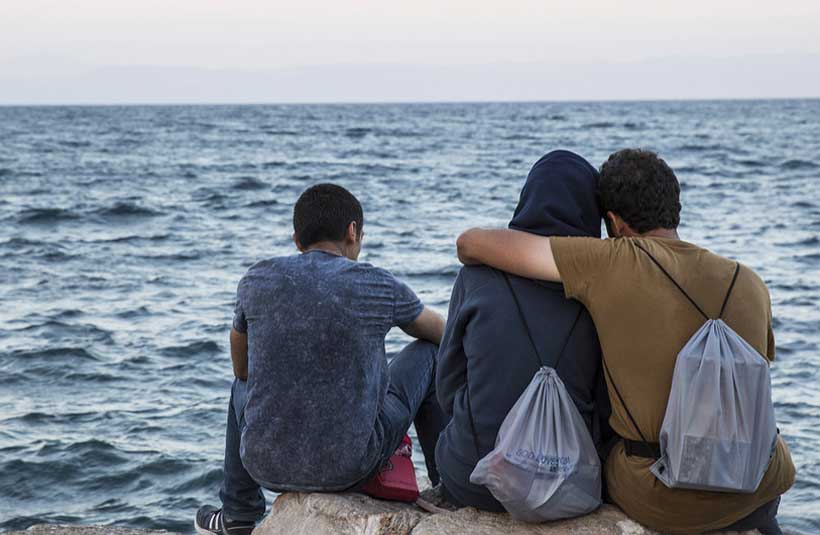In anticipation of the looming uncertainty, Afghans are lining up at the handful of remaining embassies in Kabul. As American and European troops leave, many Afghans intend to flee their country before things get worse. If they get visas, well and good. If they don’t, most will nonetheless be leaving as refugees.
The refugee trail starts from Afghanistan, passes through Iran, Turkey and Greece to eventually culminate in mainland Europe. The journey takes months to complete and is made possible by a network of smugglers who pay as little regard to international law as they do to human life. By the time the surviving refugees reach Europe, most are sick, malnourished and devoid of worldly belongings.
While the world is still grappling with refugees from Syria, the next challenge will be accommodating those from Afghanistan. European nations will have to come up with ways to either keep Afghan refugees at their homes in Afghanistan or welcome and integrate them into the European society. Although the experience of doing so hasn’t been much successful in the case of Syrian refugees, what is haunting Afghans, too, is uncertainty.
Many of the current refugees from Afghanistan are educated. When starting on their journeys, they think of Europe as a kind of heaven. On reaching, however, they find their educational qualifications invalid and their residential status uncertain. This poses a grave obstacle in their path to integration. Many have to take up menial jobs, saturating the job market in the host countries and fueling a hostile attitude toward them.
The refugee influx was a major reason for Brexit and the rise of populist governments in Europe. As Europeans saw a potential threat to their society and their way of life, they sought protection in politicians who perennially look inwards. The result is now a range of countries where conservative leaders are gaining a foothold. Anti-immigrant and nationalist sentiments are rising and there have even been organized protests against the refugees.
The US has carried out the most extensive military operations for rooting out terror from Afghanistan. Yes, it has been successful but not in rebuilding the country and providing alternative business opportunities to the third generation of Afghans that has seen nothing but war. As the US departs from Afghanistan, this generation will not headto “the city upon a hill” which remains far from the reach of the pockets of the poor Afghans. The responsibility will ultimately fall upon Europe.
So far, this responsibility has been shouldered by Afghanistan’s eastern neighbor, Pakistan. For 40 years, Pakistan has hosted Afghan refugees at the cost of its own economic progress. At its peak, the number touched 4 million and presently lies around 3 million. Being a third-world country, Pakistan can divert only a limited amount of resources from developmental activities to the welfare of refugees.
When Soviet forces attacked Afghanistan in 1979, Pakistan experienced the first strain on its economy with a massive influx of refugees. The second strain was in the shape of Afghans who fled the fighting between the US and the Taliban in 2001. The main consequence has been the stunting of growth of Pakistan’s border regions. Gradual degradation of the economy in these regions deprived them of educational and growth opportunities and today they are one of the poorest parts of Pakistan.
In fact, Pakistan has been enduring the burden of Europe and the US all the while trying to keep its own economy afloat. UN Secretary-General António Guterres remarked last year that the world must step up and match Pakistan’s compassion for refugees. But with the socio-economic impact of the COVID-19 pandemic, Pakistan is unlikely to welcome any more people from Afghanistan. The only feasible direction for Afghan refugees, therefore, is westward.
The solution to the impending crisis for Europe boils down to a single point: don’t forget to rebuild the countries that you bomb. Rebuilding attempts have been going on ever since the Taliban were ousted from Kabul but the successive regimes installed in their place could hardly move their country forward.
Afghan politicians have been trying to cover rampant corruption, ethnic nepotism and appeasement of warlords by placing the blame for the problems of their country on neighbors. While they will be flying first class to Europe with their dual nationalities, their countrymen will head to Europe through routes far less than legal.
The US as well as European countries that have supervised Afghan governments since 2001 have shown little interest in institutional building, strengthening democracy and raising a social welfare infrastructure. Now the problem is turning around to haunt them in another form. Afghan refugees will be knocking on European borders within weeks and the overburdened European states will be in a fix to address the issue.
Coalition forces are going to announce the completion of their withdrawal any moment now. European leaders with their American counterparts must sit down and decide upon rebuilding Afghanistan as a matter of top priority. Poverty is the breeding ground of extremism. If European and American leaders do not come up with a form of Marshall Plan to raise the economic conditions of Afghanistan, it is only a matter of time that they will be coming back with their bombs to uproot the next wave of extremism.


